|

HOME |
ABOUT | INDEX |
NEWS |
FACEBOOK |
CONTACT
FINANCIAL
Money | Investments | Banking | Insurance | Taxes | Budget
Financial Landscape: Challenges
of LGBTQ Households
Employment... Legal Issues... Insurance... Healthcare...
The LGBTQ community has made significant strides in
recent years towards achieving equality and acceptance.
However, despite these advancements, many LGBTQ
households continue to face unique financial challenges.
This essay will explore some of the key issues that
LGBTQ individuals and families encounter in managing
their finances and how these challenges can be
addressed.
Discrimination in the Workplace:
One of the most significant financial challenges faced
by LGBTQ individuals is discrimination in the workplace.
Studies have shown that LGBTQ individuals are more
likely to experience discrimination in hiring,
promotion, and pay compared to their heterosexual
counterparts. This discrimination can have a significant
impact on an individual's earning potential and
financial stability.
Lack of Legal Protections:
Another challenge faced by LGBTQ households is the lack
of legal protections. In many states, LGBTQ individuals
do not have the same legal rights as heterosexual
couples when it comes to marriage, adoption, and other
family-related matters. This lack of legal recognition
can make it difficult for LGBTQ couples to access
important benefits and protections, such as health
insurance, retirement benefits, and inheritance rights.
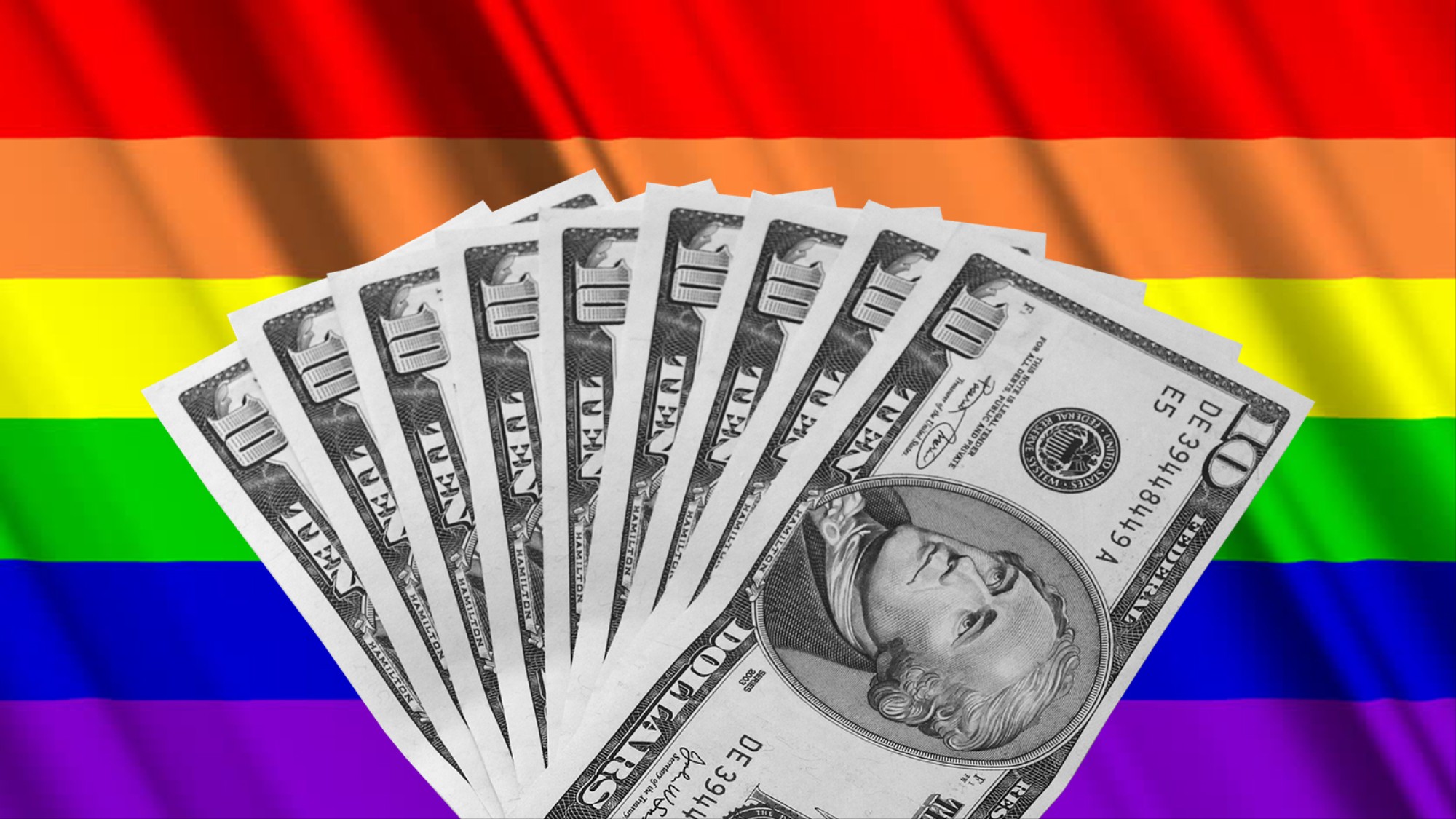
The Hidden Queer Tax
Doug and Andre: TurboTax Commercial
Lesbian Couples Earn Less Than Straight and Gay
Male Couples
Gay Married Couples Could Get Retroactive
Tax Refunds
Home is Where the Heart Is: Tips for LGBTQ Homebuyers
MSN Money: Is There Really
an LGBTQ Wealth Gap?
Helpful
Advice: Same-Sex Marriage and Taxes
Financial Planning Advice: Gay Money
Matters
Daylight: Banking for the
Queer Community
Money Makes the World Go Round
Higher Healthcare Costs:
LGBTQ individuals also face higher healthcare costs
compared to their heterosexual counterparts. Studies
have shown that LGBTQ individuals are more likely to be
uninsured or underinsured, which can lead to higher
out-of-pocket expenses for medical care. Additionally,
LGBTQ individuals are more likely to experience mental
health issues, such as depression and anxiety, which can
further increase healthcare costs.
Family Rejection:
Family rejection is another significant financial
challenge faced by LGBTQ individuals. Many LGBTQ
individuals are rejected by their families when they
come out, which can lead to financial instability.
Without the support of their families, LGBTQ individuals
may struggle to access important resources, such as
housing and education, which can impact their long-term
financial well-being.

Lack of Financial Literacy:
Finally, many LGBTQ individuals lack the financial
literacy skills needed to navigate the complex financial
landscape. Studies have shown that LGBTQ individuals are
less likely to have access to financial education and
resources compared to their heterosexual counterparts.
This lack of financial literacy can make it difficult
for LGBTQ individuals to make informed financial
decisions and plan for their future.
LGBTQ individuals and families face a range of unique
financial challenges, from discrimination in the
workplace to lack of legal protections and higher
healthcare costs. These challenges can have a
significant impact on an individual's financial
stability and well-being. However, by addressing these
issues and working towards greater equality and
acceptance, we can create a more inclusive financial
landscape for all.
US Bank: Same Sex Couples Preparing for Financial
Future
Advocate: All The Money Advice You'll Ever Need
LGBTQ Realtors: Real Estate Alliance
Prudential: The LGBTQ Financial
Experience
David Rae: Financial Planning
Halifax Bank: Supporting Pronouns
National Task Force: LGBTQ Taxpayer
Checklist
Gay Real Estate
Suze Orman: Being Gay is
the Foundation of My Success
Social Security Benefits for
Same-Sex Couples
Equality
Comes to Social Security
In a historic ruling, in November 2021, same-sex
partners and spouses can now claim Social Security
survivors’ benefits. In 2018, Lambda Legal sued the
Social Security Administration over policies that
prevented surviving partners from receiving Social
Security benefits.
Under the policy, a surviving partner could only apply
for benefits if they had been married for nine months
before their partner’s death. However, in states where
gay marriage had recently been legalized, this was
impossible. Plus, in the past, many surviving partners
couldn’t file for benefits because their states
prohibited them from being married at all.

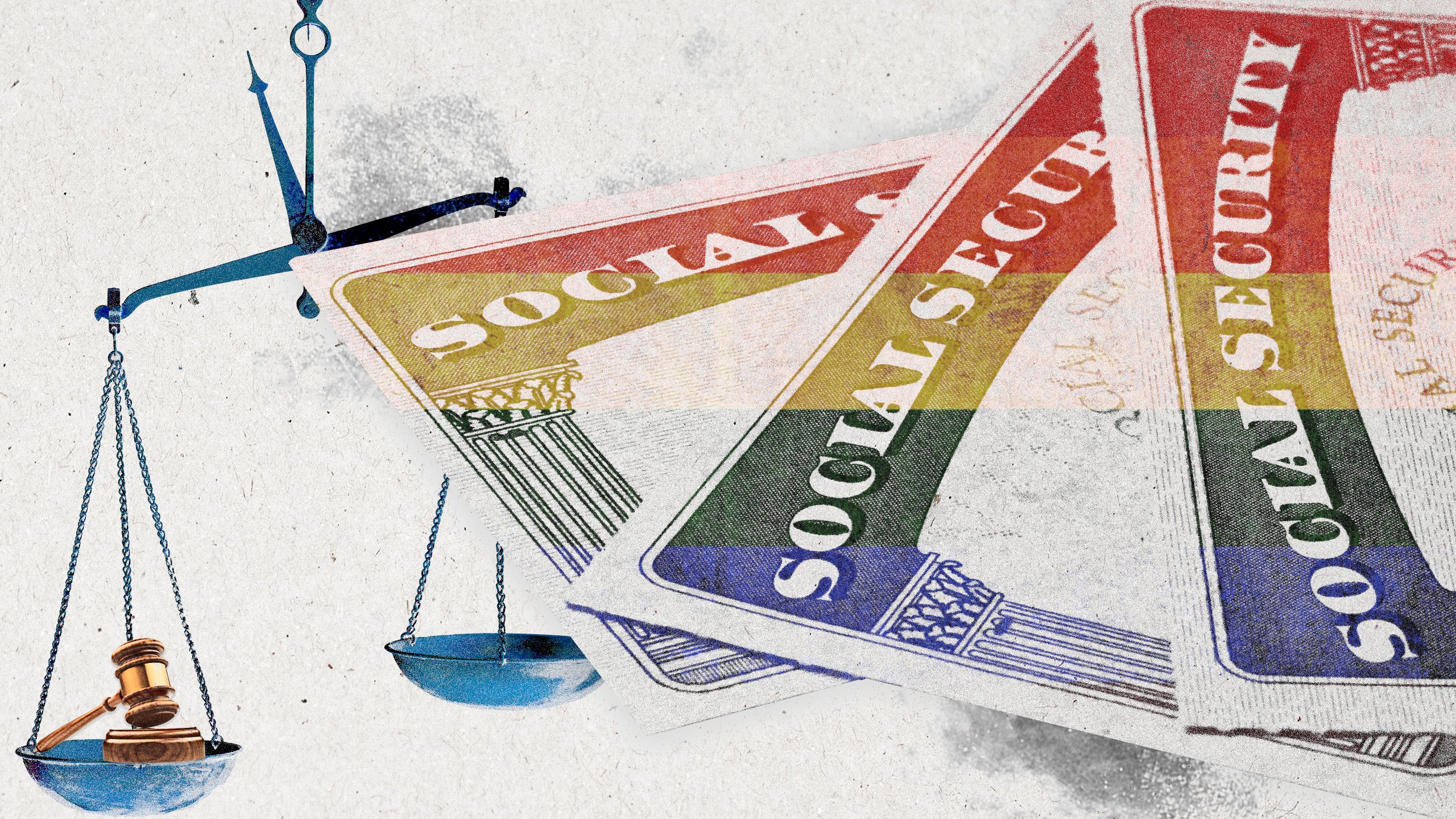

Lambda Legal filed two lawsuits on behalf of same-sex
couples who met either of these parameters. In 2020, the
federal district courts in Arizona and Washington ruled
the policies of excluding same-sex couples from
survivors’ benefits were unconstitutional. But
then-President Donald Trump appealed both cases.
The Justice Department and Social
Security Administration, under the leadership of
President Joe Biden, dismissed the appeals. Now, there
is no “waiting period” to qualify for survivors’
benefits and same-sex partners will have equal access to
Social Security survivors’ benefits.
“This is a historic development with immense
implications: survivor’s benefits are now equally
available to everyone, including potentially thousands
of same-sex partners who could not marry their loved
ones and may have thought it was futile to apply,”
Lambda Legal Counsel Peter Renn said in a statement on
the Lambda Legal website.
Lambda Legal Secures Social Security Survivor's Benefits
for Same-Sex Partners
Social Security Survivors Benefits Available to Same-Sex
Partners Thanks to Historic Ruling
Social Security Benefits for Same-Sex Couples
Same-Sex Couples Eligible for Social Security Survivors
Benefits
Same-Sex Partners Now Able to Access Social Security
Survivors Benefits
Backstory: Same-Sex Spouses Win Equal Access to Social
Security Survivor Benefits
Backstory: Tucson Man Demands Social Security Benefits
for Same-Sex Spouses Nationwide
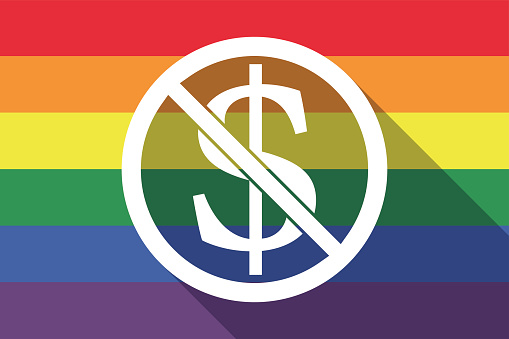

Lesbian Couples Earn Less Income
Than Straight and Gay Male Couples
Financial Inequity for
Lesbian Couples
Recent analysis of US
Census data by the Brookings Institution has found that
lesbian couples earn the lowest median family income as
compared to both opposite-gender couples and gay male
couples. This was true despite the fact that lesbian
couples were more likely than straight couples to have
traits that typically lead to higher incomes, including
having two income-earners, living in a densely populated
areas, and attaining higher education.
Conversely, gay male couples earn the most as compared
to lesbian and heterosexual couples. The report found
that average family income for gay married men is 31
percent higher than for married lesbian couples and 27
percent higher than for married straight couples.
For couples who are unmarried, the percentages are even
higher. Gay men earn 36 percent more than unmarried
lesbian couples and 38 percent more than unmarried
straight couples.
Financial Challenges for the LGBTQ Community
Lesbian House Hunting
David Rae: Financial Planning
Gay Couples' Hurdle in
Starting a Family: Insurance Policies
First National LGBTQ Credit Union
Info: Business
and the Marketplace
Queer Time: Alternative to
Adulting
LGBTQ
Realtors: Real Estate Alliance
Money Makes the World Go Round
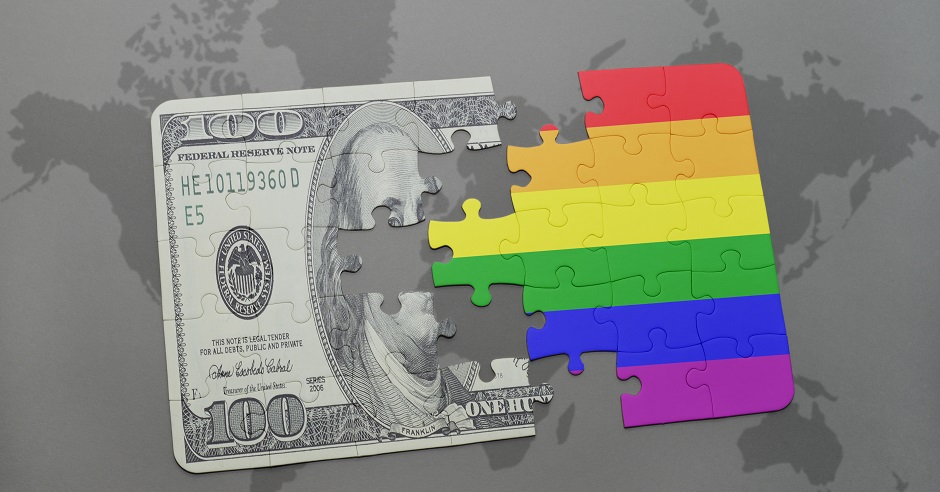

In its analysis, the Brookings Institution used data
collected from the Census Bureau’s American Community
Survey, the results of which were released in September
2020.
The study said it is the first time there has been
national data available on same-gender couples since the
Supreme Court decision in U.S. v. Windsor, which found
that a clause of the Defense of Marriage Act banning
federal recognition of same-sex marriages performed by
states was unconstitutional.
The Brookings analysis also points out that the Census
Bureau has released several analyses of its own saying
that overall, same-gender married couples out-earn
straight couples. While this is true when all
same-gender couples are grouped together, splitting the
couples into male versus female clearly tells a
different story.
[Source: Molly
Sprayregen, LGBTQ Nation, February 2022]
The Hidden Queer Tax
For Anti-Capitalist Personal Finance
Coach Leo Aquino, Trans Wealth is Trans Power
Lesbian Couples Earn Less Income Than Straight and Gay
Male Couples
Gay Married Couples Could Get Retroactive
Tax Refunds
Lambda Legal Secures Social Security Survivor's Benefits
for Same-Sex Partners
Home is Where the Rainbow Heart Is: Top
Tips for LGBTQ Homebuyers
MSN Money: Is There Really
an LGBTQ Wealth Gap?
Money Tips: Helpful
Advice: Same-Sex Marriage and Taxes
Financial Planning Advice: Gay Money
Matters
Daylight: Banking for the
Queer Community
Gay Real Estate
Queer Financial Experts
Meet LGBTQ Money Masters...
Suze, David, and Corinne...

Suze Orman - Suze
Orman is a lesbian American
financial advisor, author, and
podcast host. She was born in
Chicago and graduated from the
University of Illinois at
Urbana-Champaign with a
bachelors degree in social work.
After finishing school, Orman
moved to Berkeley, California,
where she worked as a waitress.
In 1980, she borrowed $52,000
and invested that money through
a representative at Merrill
Lynch, who promptly lost her
entire investment in trading
options. Later, Orman trained as
an account executive for Merrill
Lynch, where she learned that
the type of investment her
broker had put her in was not
suitable for her needs, as
option trading is considered a
high-risk but high-reward
investment suitable only for
high net worth individuals. It
was explained to her that
because her broker was the
highest producing representative
in the office, his actions went
unchecked. After completing her
training with Merrill Lynch, she
remained at the firm until 1983,
when she left to become a vice
president of investments at
Prudential Bache Securities.
In 1987, she founded the Suze
Orman Financial Group. The Suze
Orman Show began airing on CNBC
in 2002, running for 13 years in
the US and internationally.
Orman has written nine New York
Times bestsellers about personal
finance. She was named twice to
the Time 100 list of influential
people, has won two Emmy Awards,
and eight Gracie Awards. Orman
has written, co-produced and
hosted 8 PBS specials, and has
appeared on multiple additional
television shows. She has been a
guest on The Oprah Winfrey Show
approximately 29 times and Larry
King Live over 30 times. Orman
is currently the podcast host of
the "Suze Orman Women & Money
Podcast." As of 2020, her net
worth is $50 million. In
February 2007, Orman stated that
she is a lesbian. Orman has been
married to Kathy Travis, who is
also her business partner.

David Rae - David
Rae a gay Los Angeles Financial
Planner who helps his clients
reach their financial goals. He
has been named one of the 100
Financial Advisors In America by
Investopedia for the 6th
straight year. Officially, David
Rae is Certified Financial
Planner, Accredited Investment
Fiduciary, and President/Founder
of DRM Wealth Management. “Once
you get your financial house in
order,” he says, “It’s a lot
easier for everything
else–personal life,
professional life, family life,
and recreational life–-to fall
into place too.”
Working with a wide diversity of
clients for well over a decade,
Rae has built a successful
career developing comprehensive
financial plans to meet life
goals, retirement, tax planning,
estate issues, portfolio
revision, life insurance,
portfolio management, business
exit strategies, and more. While
based in Los Angeles, he serves
clients across the country. At
the same time, he enjoys a solid
reputation as a smart, go-to
financial guy for both
mainstream and LGBTQ media.
David Rae appears on major media
including The Today Show, NBC,
CBS, and Vogue, and speaks
nationwide on financial topics.
As a Financial Expert, David
also appeared on the Bravo TV
show “The Newlyweds,” dispensing
financial advice. He was
featured on “Am I Doing This
Right” with Buzzfeed celeb
Kelsey Darragh and “Face the
Truth” with Vivica A Fox. And he
is quoted in the media several
times per month. He also speaks
on financial and tax planning
topics across the county
throughout the year.
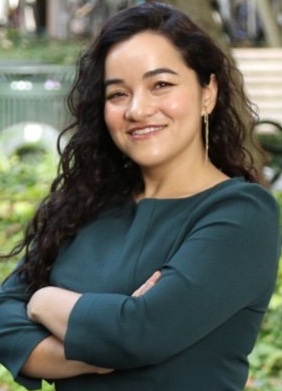
Corinne Low -
Connie Low is a queer economist,
author, and Wharton professor.
And she is a Mom. She is not
only living her best life after
her marriage in December 2024 to
wife Sondra Woodruff, she’s also
a living example of the thesis
from her forthcoming book,
"Having It All: What Data Tells
Us About Women’s Lives and
Getting the Most Out of Yours."
Women don’t need men to live
their best lives, according to
Low.
For her, “having it all” meant
subtracting her male partner. In
several ways, the gap between
men and women’s expectations has
only widened in the last few
years, with the rise of the
“manosphere” on social media,
the “trad wives” phenomenon, a
natalist cult promoted by tech
weirdos like Elon Musk, and the
“incel” movement inspiring an
anti-feminist backlash.
In Low and Woodruff’s
housekeeping routine,
meal-making and other chores for
the family aren't the “duty” of
one spouse or the other. “I’m
not physically repulsed by men,”
she explained. “I’m socially and
politically repulsed.”
Fortunately, Low says she falls
somewhere around the middle of
the Kinsey scale (a measure of a
person’s sexual orientation on a
continuum) granting her more
choices than other women.
“I know of few women who would
say, There’s no man out there
I would want to marry," Low
says. "Rather, these women are
opting out of the options that
are available in order to live
their best lives. “I want them
to set more boundaries,
renegotiate things, reclaim
their time, correct leisure
inequality,” she says. “Not
everyone needs to get divorced.”
But for many women, unhappiness
can be traced to those data
points, indicating men aren’t
interested in a relationship
that most women would term
equitable. All Low can do — as
she has with steady stream of
straight female students
flocking to her office asking if
they should break up with
boyfriends — is present them
with the facts.
US Bank: Same Sex Couples Preparing for Financial
Future
Advocate: All The Money Advice You'll Ever Need
LGBTQ Realtors: Real Estate Alliance
Prudential: The LGBTQ Financial
Experience
David Rae: Financial Planning
Halifax Bank: Supporting Pronouns
National Task Force: LGBTQ Taxpayer
Checklist
Gay Real Estate
Suze Orman: Being Gay is
the Foundation of My Success
Money Makes the
World Go Round
Same-Sex Marriage and Taxes
Financial Planning and Tax
Strategies for Same-Sex Couples
On June 26, 2015, the Supreme Court settled the issue of
same-sex marriage in the US with the landmark decision
in Obergefell v. Hodges. This decision requires states
to issue marriage licenses to same-sex couples and for
states to recognize such marriages that were performed
in other states. Gay marriage became legal in all 50
states.
The governmental recognition of same-sex marriage means
that same-sex couples can now enjoy the same rights and
privileges that opposite-sex couples do. And the same
responsibilities and potential pitfalls of marriage.
Taxes are a prime example. Married same-sex couples must
now consider the best tax filing status now that they
have the options of “married filing jointly” and
“married filing separately.” As with opposite-sex
couples, the answer is not always straightforward.

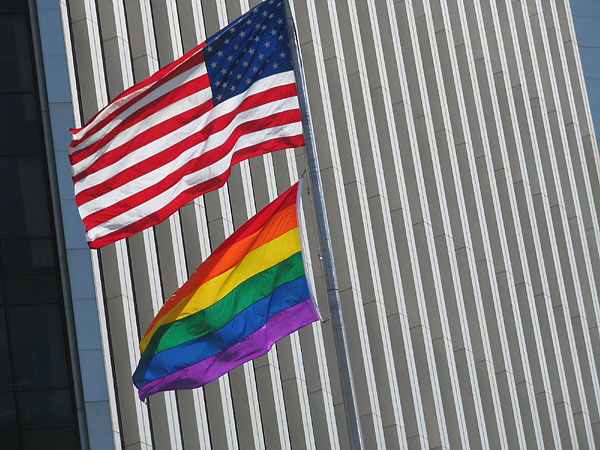
LGBTQ Newlyweds: Life After the Wedding
Gay Retirement Guide For Fabulous LGBTQ Financial
Planning
Taxes And the LGBTQ Community
Info:
Legal
Issues
When spouses have a large disparity in their incomes,
they can benefit from the “marriage bonus” of filing
jointly. That has the effect of averaging out the
incomes, lowering the tax burden on the higher-earning
spouse a lot while raising the taxes on the
lower-earning spouse slightly. The couple’s overall tax
bill is then lowered as a result.
When spouses earn approximately
the same amount of money, the effect depends on the
amount of their collective income. Couples with more
modest matching incomes are likely to pay about the same
amount of tax as before, while higher-earning couples
could run into the “marriage penalty” of ending up in
such a high tax bracket that they would have been better
off filing as singles.
Same-sex couples with higher incomes are more likely to
itemize, and also have income levels where certain
itemized tax deductions like mortgage interest,
charitable contributions, and property taxes begin to
phase out or disappear completely. On the other end of
the income scale, combining incomes could make a couple
ineligible for some tax credits and other low-income
benefits. Unfortunately, the only good way to determine
this is to calculate taxes both ways (joint and separate
status).



LGBTQ Realtors: Real Estate Alliance
US Bank: Same Sex Couples Preparing for Their Financial
Future
Advocate: All The Money Advice You'll Ever Need
Prudential: The LGBTQ Financial
Experience
David Rae: Financial Planning
Same-sex couples in some states that did not recognize
gay marriage prior to the ruling already have practice
doing multiple returns. State taxes were not as
straightforward prior to the ruling, because some states
that did not recognize same-sex marriage required
couples to file under single status even though their
federal status was married filing jointly. The state
definition of income in these states was tied to the
federal definition, forcing the preparation of an extra
“dummy” federal tax return for each partner just to
define income for state tax purposes.
Same-sex married couples must also take the time to
adjust all financial planning vehicles such as
retirement plans, wills, and estate plans to denote the
proper marriage and beneficiary status. Money or
property transfers to a spouse are generally exempt from
federal taxes, so failure to update your status
correctly could be costly.
From now on, same-sex married couples have the same tax
decisions to make that opposite-sex couples do. The
Supreme Court decision provided clarity to their taxes.
National Task Force: LGBTQ Taxpayer
Checklist
First National LGBTQ Credit Union
Advisor Explains Importance of Retirement
Planning for LGBTQ Community
Queer Time: Alternative to
Adulting
Lesbian House Hunting
LGBTQ Newlyweds: Life After the Wedding
Info:
Career
and Workplace Issues
Gay Real Estate
Prudential: The LGBTQ Financial
Experience
The Hidden Queer Tax

Adulting
Favorite childhood
memory: not paying bills
"If you're going to be a grown-up, you've got to start
thinking about grown-up things. And number one is
money."
-Julian Barnes
"Queer lives are notable for their lack of
chrononormativity, starting in childhood. The very ways
we understand growth are predicated on a legible and
linear concept of maturation that many queer kids do not
experience."
-Sara Jaffe
“It was so hard for a queer person to become an adult.
They didn’t get married. They didn’t have children. They
didn’t buy homes or have job-jobs. Those who claim queer
as a political identity reject the heteronormative
fantasy of adulthood."
-Michelle Tea
"Adulting is serious stuff. Yes, it is cool to be
independent and getting to do your own thing. But with
freedom comes responsibility. Where you are not just
responsible for taking care of yourself or earning
enough to pay your bills, but you are also responsible
for facing life and dealing with its upheavals and
surprises. There are no right or wrong ways to face
Life. Everyone has to do what they believe they have to
do at a particular moment and keep going."
-Avis Viswanathan
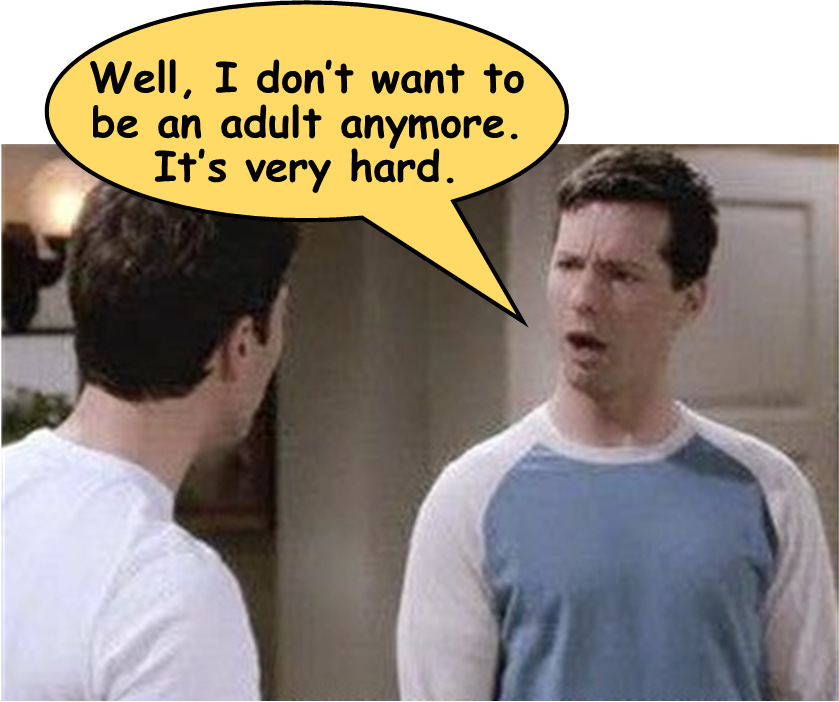
I
Don't Want to Be an Adult
Home is Where the Rainbow Heart Is: Top
Tips for LGBTQ Homebuyers
Financial Planning Advice: LGBTQ Topics
Straight Time vs. Queer
Time
Info:
Legal
Issues
For Anti-Capitalist Personal Finance
Coach Leo Aquino, Trans Wealth is Trans Power
Financial Challenges for the LGBTQ Community
Social Security: What Every LGBTQ Couple
Needs to Know
David Rae: Financial Planning
Money Makes the
World Go Round
"For queer people, conventional adulthood is not only
inaccessible but undesirable. They thus develop a
relationship to time itself that is decidedly queer."
-Sara Jaffe
"Queer uses of time
and space develop in opposition to the institutions of
family, heterosexuality, and reproduction. Queerness
itself is an outcome of strange temporalities,
imaginative life schedules, and eccentric economic
practices. It is inflected by time-warping experiences
as diverse as coming out, gender transitions, and
generation-defining tragedies such as the AIDS epidemic.
That is, queerness is constituted by its difference from
conventional imperatives of time."
-Jack Halberstam

"Adulting"
is now a verb. An actual word in its own right. The
Urban Dictionary defines "adulting" as "to do grown up
things and hold responsibilities such as a 9-5 job, a
mortgage, rent, a car payment, or anything else that
makes one think of grown ups." In 2019, the term "adulting"
increased in usage by 700 percent on Twitter.
So, welcome to the real world, to
adulthood, to the task of adulting, and to the practice of people who generally are adults, but
don't see themselves that way, doing tasks like holding
down a job, managing money, paying taxes, shopping for
groceries, cooking meals, and doing laundry. So many
things to do!
Mark Twain is often credited with saying,
"Life is just one damn thing after another!" But it was
Edna St. Vincent Millay who explained,
"It’s not true that life is one damn thing after
another. It’s one damn thing over and over again."
Queer Time: Alternative to
Adulting
Straight
Time vs. Queer Time
Gay Real Estate
I
Don't Want to Be an Adult
Home is Where the Rainbow
Heart Is: Top Tips for LGBTQ Homebuyers
Daylight:
Banking for the Queer Community
For Anti-Capitalist
Personal Finance Coach Leo Aquino, Trans
Wealth is Trans Power
Money Tips: Helpful
Advice: Same-Sex Marriage and Taxes
Financial Planning Advice: Gay Money
Matters
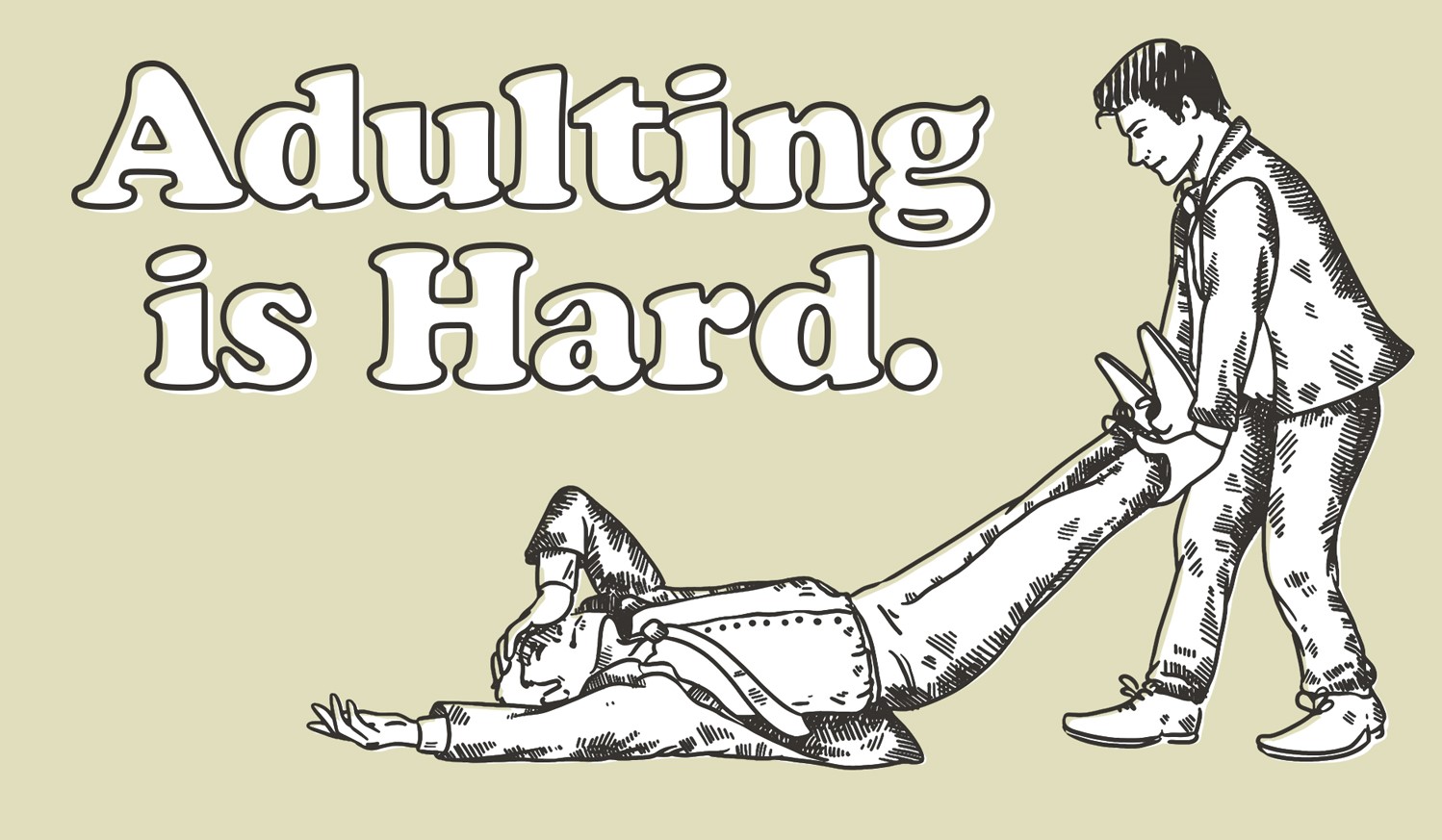
What actually is adulting?
In estoeric terms, it is when you begin to take
responsibility for yourself, behave in a mature and
independent way, and feel somewhat in control of your
life. In practical terms, it is when food
shopping replaces partying on Saturdays and Sundays.
You and your partner are not out having drinks with your friends
at the local gay bar. No, instead, you’re at the
grocery store with your list of food to cook for the week ahead.
Because you care about that now. Priorities.
Adulting
is about financial literacy and becoming financially
independent. It's about fiscal responsibility, paying bills, saving money, and
managing a budget. It's about understanding things like
job security, career planning, professional development, borrowing money, insurance, investments,
real estate, mortgages, contracts, legal issues, healthcare, and
planning for retirement. It might also be about
marriage, children, adoption, and parenting. You know,
the fun stuff in life. The stuff LGBTQ used to not have
to worry about.
Or, perhaps we can relate to what one
fabulous drag queen once exclaimed, "Adulting is too
hard. Let's play something else!"
First National LGBTQ Credit Union
Info: Business
and the Marketplace
US Bank: Same Sex Couples Preparing for Their Financial
Future
Advocate: All The Money Advice You'll Ever Need
National Task Force: LGBTQ Taxpayer
Checklist
LGBTQ Newlyweds: Life After the Wedding
Info:
Legal
Issues
LGBTQ Realtors: Real Estate
Alliance
Financial Challenges for the LGBTQ Community
Lesbian House Hunting
Prudential: The LGBTQ Financial
Experience
I Don't Want to Be an Adult
Queer Our Taxes
Filing your taxes can be a
complicated and intimidating
process
For many LGBTQ people, the
process is made even more
unapproachable because tax
software and tax preparation
companies seldom have a clear
understanding of the credits,
deductions, and other issues
that are most relevant for
members of our community.
Finding a tax preparer with an in-depth understanding of
the financial and personal lives of LGBTQ people can be
difficult. That shouldn’t mean that you miss out on
claiming credits and deductions that you’re entitled to
receive.
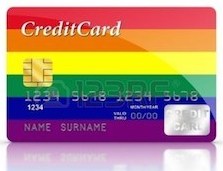  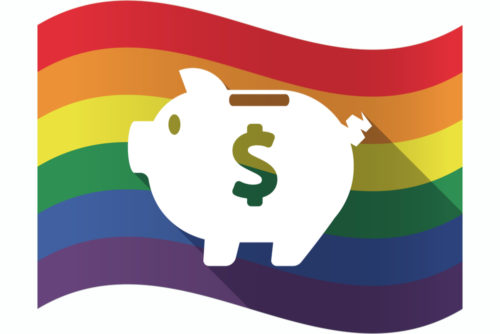
Did you know?
--If you itemize, you may be able to deduct the
out-of-pocket cost of transition-related care,
including: surgery; reproductive health care, including
abortion; and HIV-related care.
--The IRS checks your name and gender marker against the
Social Security Administration’s database.
--If you adopt a child, you may be able to claim a
credit to offset the costs of adoption up to $13,190.
Lambda Legal
Gay Law Network
Queer Time: Alternative to
Adulting
Queer
Cents
David Rae: Financial Planning
Info:
Legal
Issues
Gay Real Estate Network
CNBC Video: Suze Orman's Investment Advice
Gay Marriage Lawyers
LGBTQ Financial Info: Tax, Insurance,
Investing
Wells Fargo LGBTQ Financial Advice
Gay Real Estate
Info: Business
and the Marketplace
Straight Time vs. Queer
Time

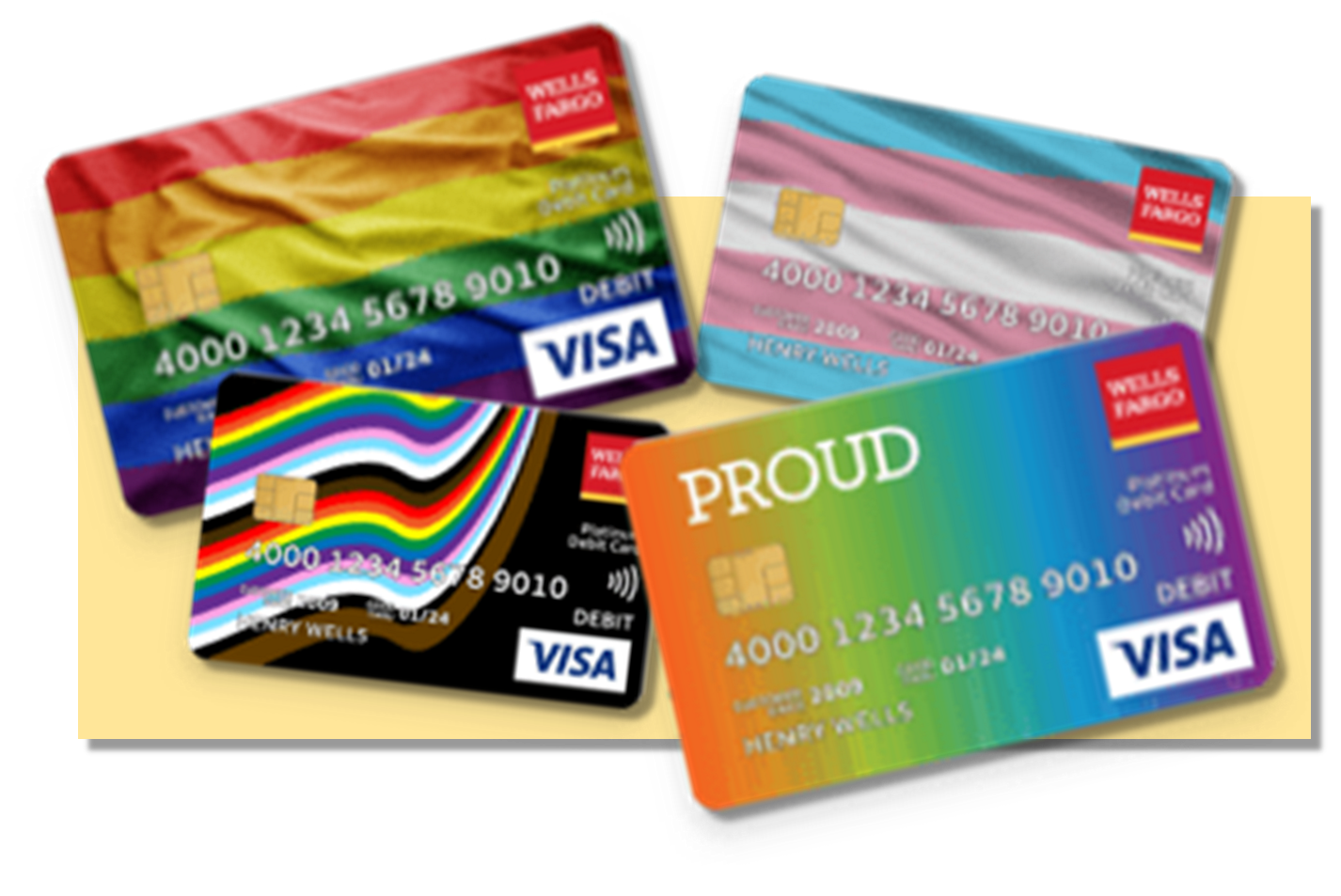
Financial Quotes
“Marriage equality gave me a sense of inclusion in
mainstream society.”
– Gay Transgender Male, Millennial
“As an older person, I see a dramatic change in society.
There is a comfort level and emotional security for
LGBTQ people that I never thought I would see in my
lifetime. I did not realize before how important the
right to marry was. It includes people in society,
allows them to participate as a family like everyone
else.”
–Lesbian Female, Boomer
“We can now file our tax returns together instead of
having to figure out how to divide everything up.”
–Lesbian Female, Gen X
“Filing taxes is simpler, because
we can now file as legally married rather than filing
separately. So we only fill out one tax form, rather
than two (one per person). Our situation is also simpler
because my husband is on my benefit plan (health
insurance), which is paid for with my pretax earnings.
When we had domestic partnership benefits, it was paid
for with my post-tax earnings.”
–Transgender Male, Millennial
“I no longer have to worry about what will happen to my
husband in the event of my death. His interests are
protected now that we are married.”
–Gay Male, Boomer
“I was able to add my husband to my insurance policy.”
–Gay Male, Boomer
Money Tips: Helpful Advice: Same-Sex
Marriage and Taxes
Queer Time: Alternative to
Adulting
Info: Business
and the Marketplace
Financial Planning Advice: Gay Money
Matters
Advocate: All The Money Advice You'll Ever Need
Lesbian House Hunting
National Task Force: LGBTQ Taxpayer
Checklist
Suze Orman: Being Gay is
the Foundation of My Success
Info:
Career
and Workplace Issues
US Bank: Same Sex Couples Preparing for Their Financial
Future
LGBTQ Newlyweds: Life After the Wedding
Prudential: The LGBTQ Financial
Experience
Money Makes the World Go Round

How to be Fiscally Fabulous the Gay Way
Managing your wealth
We all want to be “Fiscally Fabulous,” don’t we?
Renowned LGBTQ Financial Adviser David Rae provides some
smart financial tips. It’s not just a problem for gay
people, but when consumerism runs rampant it can stunt
our futures. Here are a few tips to negotiate around
those uncontrollable urges to keep up with the Fabulous
Gay Joneses.
If you would rather look rich than actually become
wealthy, then stop reading now. If, on the other hand
you actually want help to reach your financial goals
(you do have financial goals, don’t you?), here are a
few tips that can help you maintain a great lifestyle
while also enjoying that lifestyle going far into the
future.
One of the great joys of our gay culture is a heightened
appreciation of things; things to do, things to see,
things to have, things to buy. And we particularly love
the latest things. But the flipside of that coin is that
it can be tough to keep spending under control. My
favorite quote from the Fight Club movie sums it up
perfectly: “We buy things we don’t need, with money we
don’t have, to impress people we don’t like.”

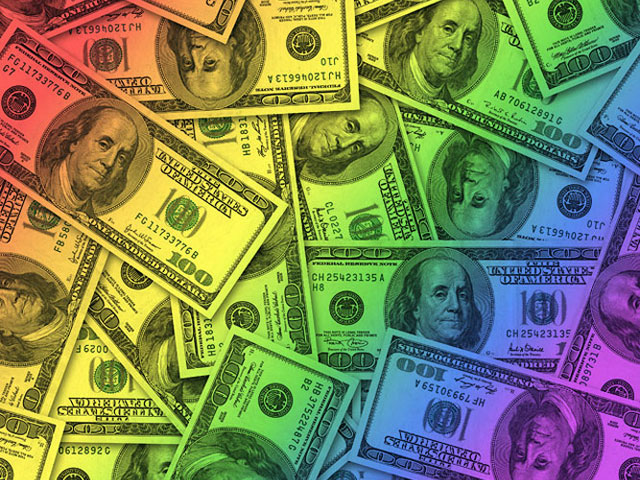
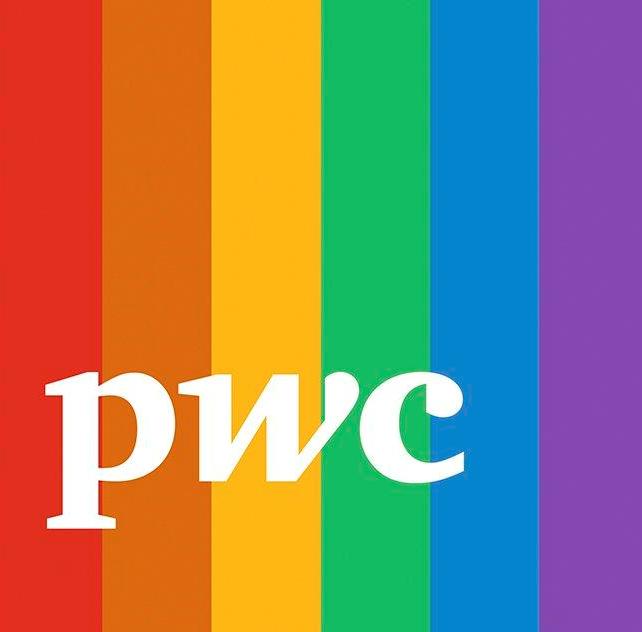
There is another way.
Fiscally Fabulous Gays spend less than they make
Seems pretty obvious, right? But don’t we all have at
least one gay friend with a busy social life, heavy
travel schedule and incredible wardrobe but with
thousands of dollars of debt?
Repeat after me: Carrying balances
on credit cards is a great way to kill your chances of
creating wealth. It’s not how much you make, but how
much you keep that drives wealth accumulation. Also,
with no emergency fund, small balances on credit cards
can quickly spiral out of control. By paying off your
balance and eliminating having to pay credit card
interest, you’ll actually have more money to spend in
the long run.
Fiscally Fabulous Gays ignore the Joneses
We all suffer from some status envy, but often those
status symbols are merely mirages. They’re not real.
Living in West Hollywood, I can tell you that looks are
deceiving. That gorgeous guy driving a Bentley may
actually be living out of that Bentley too. And how many
of the “Real Housewives” have had their cars or even
houses repossessed? Not to mention jail time. Nothing to
envy about that.
So only spend what makes sense for your pocketbook. And
if you’re worried that you’ll lose friends because
you’re not rocking the latest pair of $500 sunglasses,
maybe it’s time to get some new friends.
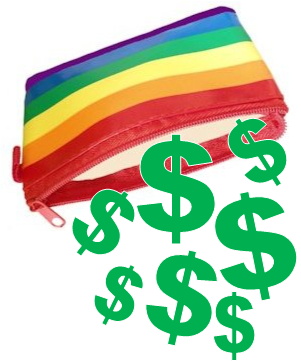

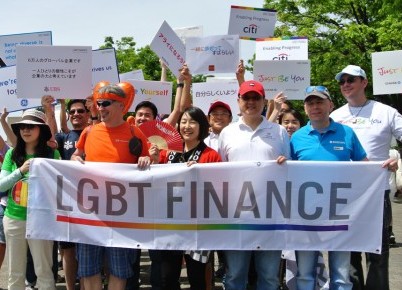
Lambda Legal
Gay Law Network
Queer
Cents
Queer Time: Alternative to
Adulting
Suze Orman: Being Gay is
the Foundation of My Success
Info:
Legal
Issues
LGBTQ Realtors: Real Estate
Alliance
Daylight: Banking for the
Queer Community
Home is Where the Rainbow Heart Is: Top
Tips for LGBTQ Homebuyers
Gay Real Estate Network
Financial Challenges for the LGBTQ Community
Fiscally Fabulous Gays brush up on their bargain-finding
skills
Like a lot of gay people, I love
to travel. I also love to get a great deal and often
shop around for major purchases. (My husband counts
himself lucky that I actually find this enjoyable.) Last
year a few friends headed out for a trip. I bought my
flight in advance and got a pretty good deal. One friend
procrastinated and found himself stuck in a middle seat,
squeezed between two hefty Midwesterners, for almost
double what I paid. We both went to the same place but
he got no added value for the extra expense.
A dollar saved is better than a dollar earned (and no
taxes are due on savings). To think of it another way,
the more you save in one area like flights, the more
money you’ll have to spend on fun things like dinner
with friends or, it kills me to say this, $500
sunglasses.
Fiscally Fabulous Gays understand that need and want are
not the same thing
It really amazes me how often people confuse these two
things. For example: “I want the new iPhone 10” is not
the same as “My cell phone died, I need a new one.” Yes,
it’s true. You read it here first.
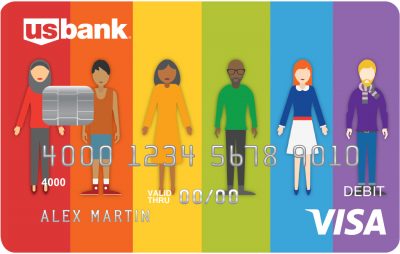
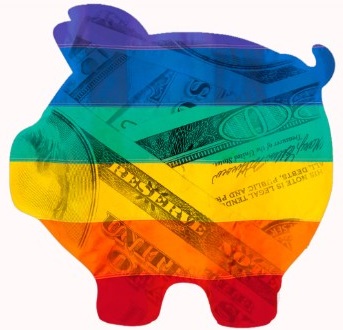
Fiscally Fabulous Gays pay themselves first by saving
automatically
Set up an automatic deposit into a saving account,
retirement account or even a mutual fund. Make it
automatic and treat it like it’s a bill. If you never
see the money because it’s tucked safely away earning
interest, it’ll less likely to tempt you into spending
it.
You may be surprised how you don’t miss the money, and
how quickly it adds up. You can even use this trick for
short-term goals like a vacation. Think of how much more
fun you could have knowing your Atlantis Cruise or
Provincetown stay is paid in full, in advance and
without coming home to a mountain of debt.
These are just a few basic steps you can take right now
to help get you moving in the right direction
financially, and on the road to true financial security.
Working with a gay fiduciary financial planner to map
out your financial goals can help you get on track to
setting and achieving your goals.
Whether you are just entering the work force, about to
retire or anywhere in between, the best advice I can
give you now is to get your head out of the sand, pay
yourself first and start accumulating wealth now. Being
a fiscally fabulous gay may be more challenging for some
than others. But hey, who says you’re not up for a
challenge? No one’s ever said “I wish I had I’d
starting saving later or saved less.” Ever.
[Source: David Rae,
Certified Financial Planner, Accredited Investment
Fiduciary, Trilogy Financial, Los Angeles, April 2017]

For Anti-Capitalist Personal Finance
Coach Leo Aquino, Trans Wealth is Trans Power
CNBC Video: Suze Orman's Investment Advice
David Rae: Financial Planning
Straight Time vs. Queer
Time
Gay Marriage Lawyers
LGBTQ Financial Info: Tax, Insurance,
Investing
Gay Real Estate
Info:
Career
and Workplace Issues
Straight Time vs. Queer
Time
Wells Fargo LGBTQ Financial Advice
US Bank: Same Sex Couples Preparing for Their Financial
Future
LGBTQ
Friendly Financial Institutions
They may be vilified for debit card fees and shoddy
mortgage loans, but big banks are among the most LGBTQ-friendly
places to work, a new study finds.
Bank of America, JPMorgan Chase, Citigroup and Wells
Fargo are among the nearly 200 business that received a
100 percent score in the Human Rights Campaign’s
Corporate Equality Index, a yearly survey, which
evaluates the relative LGBTQ-friendliness of companies
based on a variety of factors, including their benefits
offerings and engagement with the LGBTQ community. The
financial sector ranked higher than many others,
according to the survey.
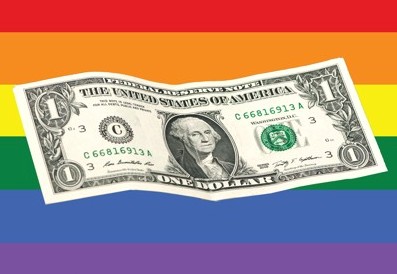
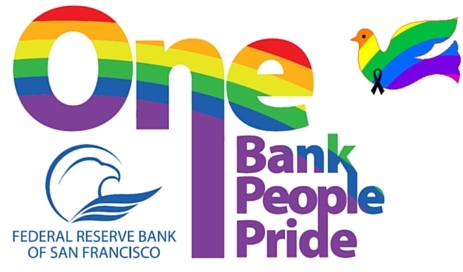
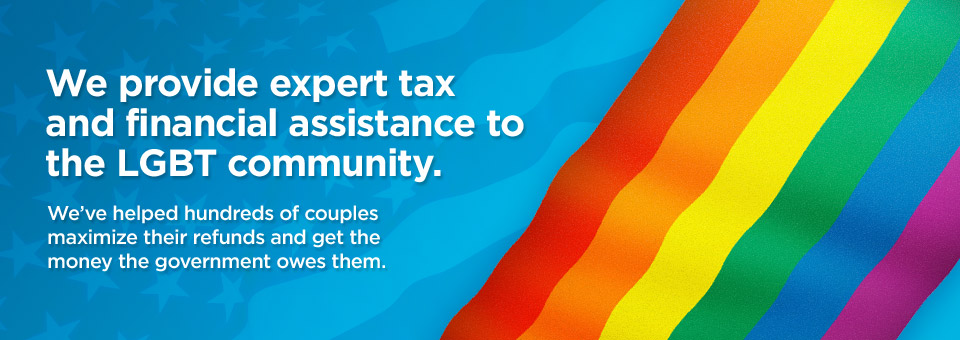
When the HRC began conducting the survey a decade ago,
only 13 companies got a top score. Nearly 90 percent of
the businesses in the study offer domestic partner
health benefits and more than one-third provide a
transgender-inclusive health insurance plan. The number
of Fortune 500 companies offering domestic partner
benefits has increased 75 percent since 2002, the study
found.
Wells Fargo became the first American bank to feature an
LGBTQ couple in a national TV campaign.
Here is a list of LGBTQ friendly financial institutions,
including banks, investment firms, financial planners,
and insurance companies:
|
Accenture
Aetna
American Express
Ameriprise
Bank of America
Bank of New York Mellon
Barclays Capital
Capital One

|
Charles Schwab
Citigroup
Deloitte
Deutsche Bank
Ernst & Young
JP Morgan Chase
KPMG
MetLife

|
Morgan Stanley
Pricewaterhouse Coopers
Prudential
Sun Life
TIAA
US Bancorp
UBS
Wells Fargo

|
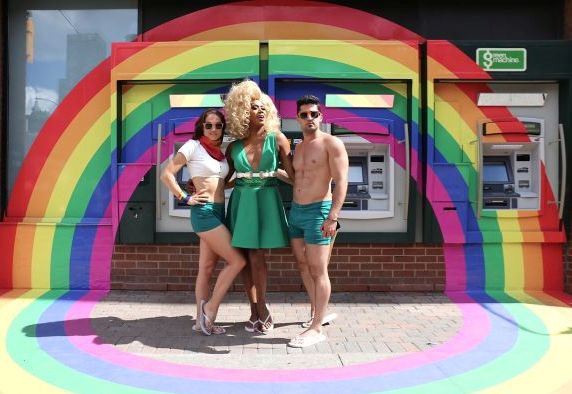
National Task Force: LGBTQ Taxpayer
Checklist
LGBTQ Newlyweds: Life After the Wedding
Advocate: All The Money Advice You'll Ever Need
Info: Business
and the Marketplace
Prudential: The LGBTQ Financial
Experience
Financial Planning Advice: LGBTQ Topics
Social Security: What Every LGBTQ Couple
Needs to Know
First National LGBTQ Credit Union
LGBTQ
Newlyweds: Life After the Wedding
New set of challenges for LGBTQ
couples
I’ve been gay my whole life, a Certified Financial
Planner for well over a decade, coupled with my
sweetheart for six years and married to him for 13
months and counting. From this perspective, I’d like to
share a few tips for a happy, healthy and successful
marriage with my LGBTQ brethren. While less experienced
at marriage (so far), I do have considerable background
as a Financial Planner working with LGBTQ couples to the
point that it has become my specialty.
As a community, our relationships face a unique set of
challenges. Fortunately, lack of legal recognition is no
longer a major issue (while I’m not naïve to think
discrimination is finished, the tide has shifted
dramatically, and permanently, in our favor). But
newfound marriage equality is forcing many couples to
deal with issues they may have been able to previously
ignore.
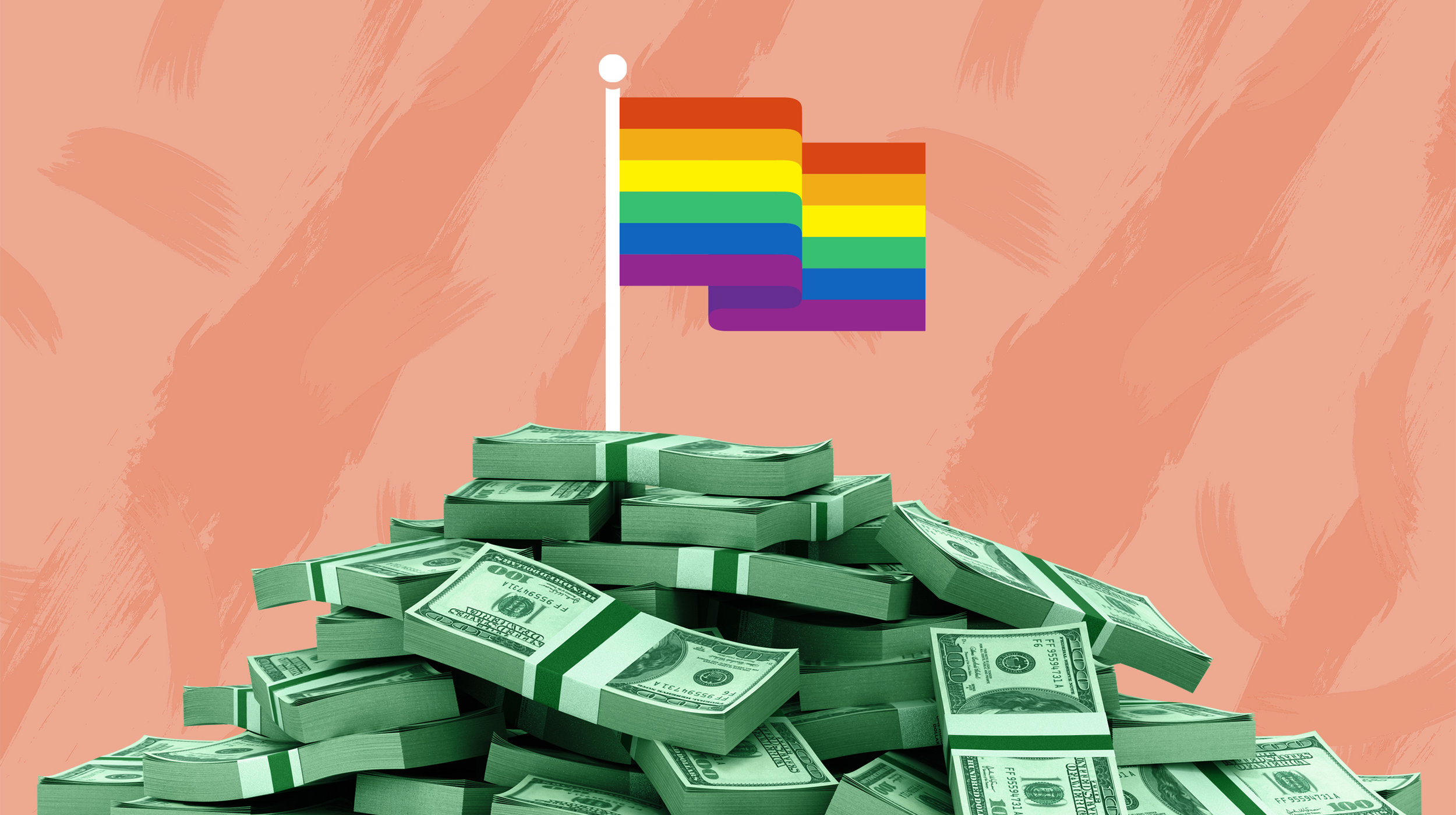
Lesbian Couples Earn Less Income Than Straight and Gay
Male Couples
Gay Married Couples Could Get Retroactive
Tax Refunds
Home is Where the Rainbow Heart Is: Top
Tips for LGBTQ Homebuyers
MSN Money: Is There Really
an LGBTQ Wealth Gap?
Money Tips: Helpful
Advice: Same-Sex Marriage and Taxes
Financial Planning Advice: Gay Money
Matters
Daylight: Banking for the
Queer Community
At the same time, all married couples face challenges
directly or indirectly related to money and finances. I
would never claim to have all the answers to every
marriage problem. But here are some significant ways to
help reduce the likelihood of money woes jeopardizing
your relationship.
Plan, Plan, Plan
Capable couples communicate about
money early and often. Ideally, I’d like to see you have
a financial plan in place before you tie the knot.
Working on (and working out) a financial plan together
can preemptively diffuse monetary time bombs and future
chaos. Avoiding conversations about your finances now
exponentially increases your chances of some small bump
in the road turning into a larger issue later. Essential
topics include kids, where to live, how much to save and
credit card management.
Figure Out How To Split Expenses
Find an arrangement that works for you as a couple. Some
couples work a 50-50 split while others share expenses
based on the size of their incomes. The important thing
is to have an arrangement that you both find fair and
that works for you. Not taking this step can easily lead
to resentment or fights over spending in other areas.

LGBTQ Realtors: Real Estate
Alliance
US Bank: Same Sex Couples Preparing for Their Financial
Future
Advocate: All The Money Advice You'll Ever Need
Prudential: The LGBTQ Financial
Experience
David Rae: Financial Planning
Halifax Bank: Supporting Pronouns
National Task Force: LGBTQ Taxpayer
Checklist
Gay Real Estate
Suze Orman: Being Gay is
the Foundation of My Success
Get Your Policies And Paperwork In Order
You are now a
married couple with legally recognized rights and
obligations. Make sure your beneficiaries are up to
date. Obtain the proper amounts of life insurance, and
consider disability and long-term care insurance. Also
remember you will now most likely be filing your taxes
jointly. So be strategic with retirement plan
contributions and other potential spousal benefits that
may be available to you now.
Expect The Unexpected
Life happens. Odds are, if you
are together long enough, someone will get sick or laid
off, a car will break down, or some other emergency will
pop up. Being prepared and having an emergency fund will
help keep you on track for your financial goals, reduce
the odds of having to cancel the “fun” parts of your
plan and reduce the financial stress in the household.
At the very least, a nice financial cushion will help to
ensure that much-needed last minute trip to Puerto
Vallarta won’t end up piling up interest on a credit
card.
Figure In The Fun
If you can
afford it, also set aside money for the memory-making
good times like vacations, adventures on your bucket
list or all-out binges on holiday gifts. Getting into
the habit of saving becomes easier when you also include
something fun and exciting in the mix. As essential as
it is, it may be hard for you two to get excited about
contributing to a retirement that could be 20 or 30
years away. But knowing you’re also saving up for a trip
to Hawaii next winter might help keep things on track.
(Mind you, neither one should come at the expense of the
other. But you knew that, right?)
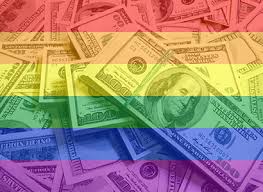
Watch The Waistline Along With The Bottom Line
Many of
our newly married friends (gay and straight) seem to
pack on a few extra pounds in their first years of
marriage. Do yourself a favor and limit the dining out
and ordering in. Your waistline, your wallet and your
svelte 90-year-old self will thank you for it. Let the
good times roll, for sure, but keep up with the
crunches, too.
Take Action Now
If you procrastinate and don’t act on
your financial plan, even the most expert guidance on
the planet is irrelevant. The best advice I can give is
to get your head out of the sand and start building your
financial lives together now, no matter how long you’ve
been together. Consider contacting a professional who
can help with your specific situation and time frame.
Putting a plan in place and saving for your goals means
that you won’t outlive your financial resources and are
well positioned to live happily ever after.
[Source: David Rae,
Certified Financial Planner, Accredited Investment
Fiduciary, Trilogy Financial, Los Angeles, November
2016]
Money Tips: Helpful
Advice: Same-Sex Marriage and Taxes
Financial Challenges for the LGBTQ Community
Gay Real Estate
MSN Money: Is There Really
an LGBTQ Wealth Gap?
Queer Time: Alternative to
Adulting
Lesbian House Hunting
Home is Where the Rainbow Heart Is: Top
Tips for LGBTQ Homebuyers
Daylight: Banking for the
Queer Community
inancial Planning Advice: Gay Money
Matters
Info: Business
and the Marketplace
US Bank: Same Sex Couples Preparing for Their Financial
Future
Advocate: All The Money Advice You'll Ever Need
National Task Force: LGBTQ Taxpayer
Checklist
LGBTQ Newlyweds: Life After the Wedding
Info:
Legal
Issues
For Anti-Capitalist Personal Finance
Coach Leo Aquino, Trans Wealth is Trans Power
Straight Time vs. Queer
Time
Prudential: The LGBTQ Financial
Experience
Money Makes the
World Go Round

HOME
QUEER CAFE
│ LGBTQ Information Network │ Established 2017 |